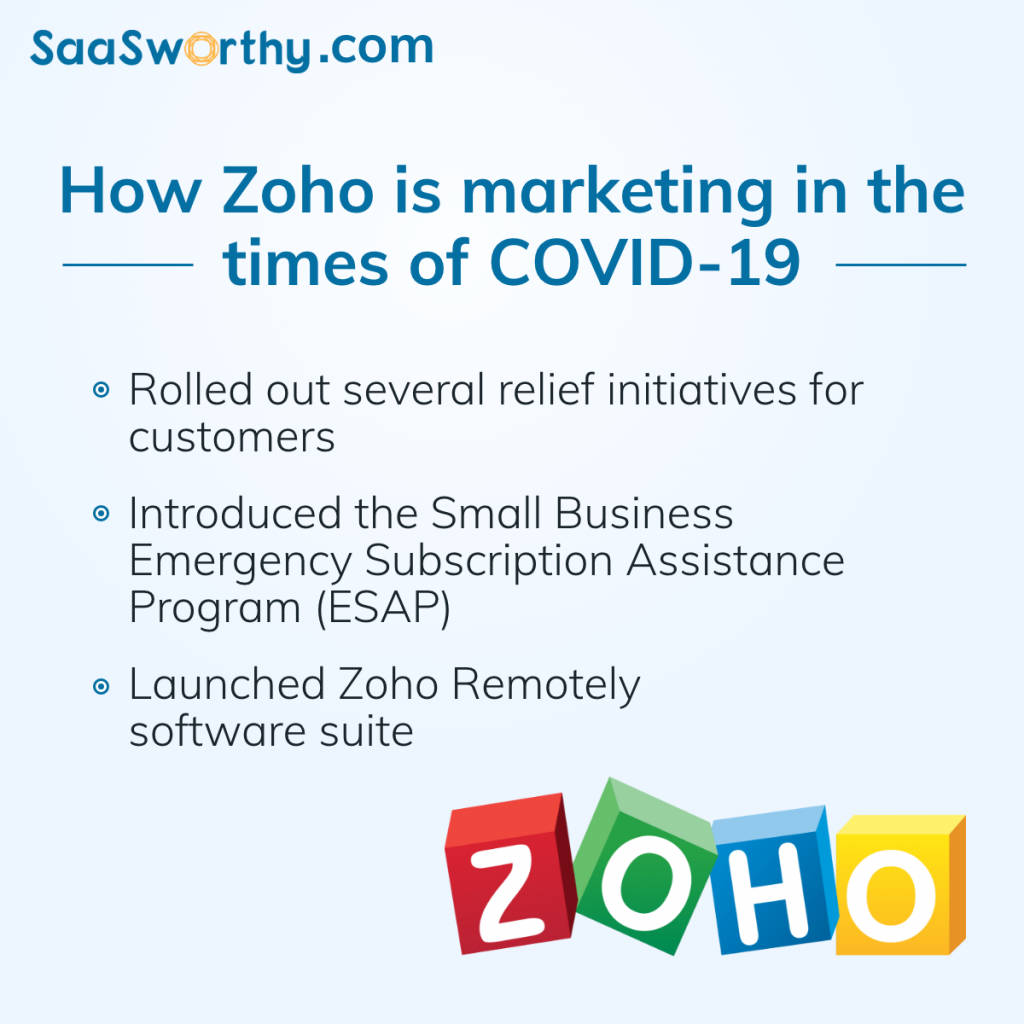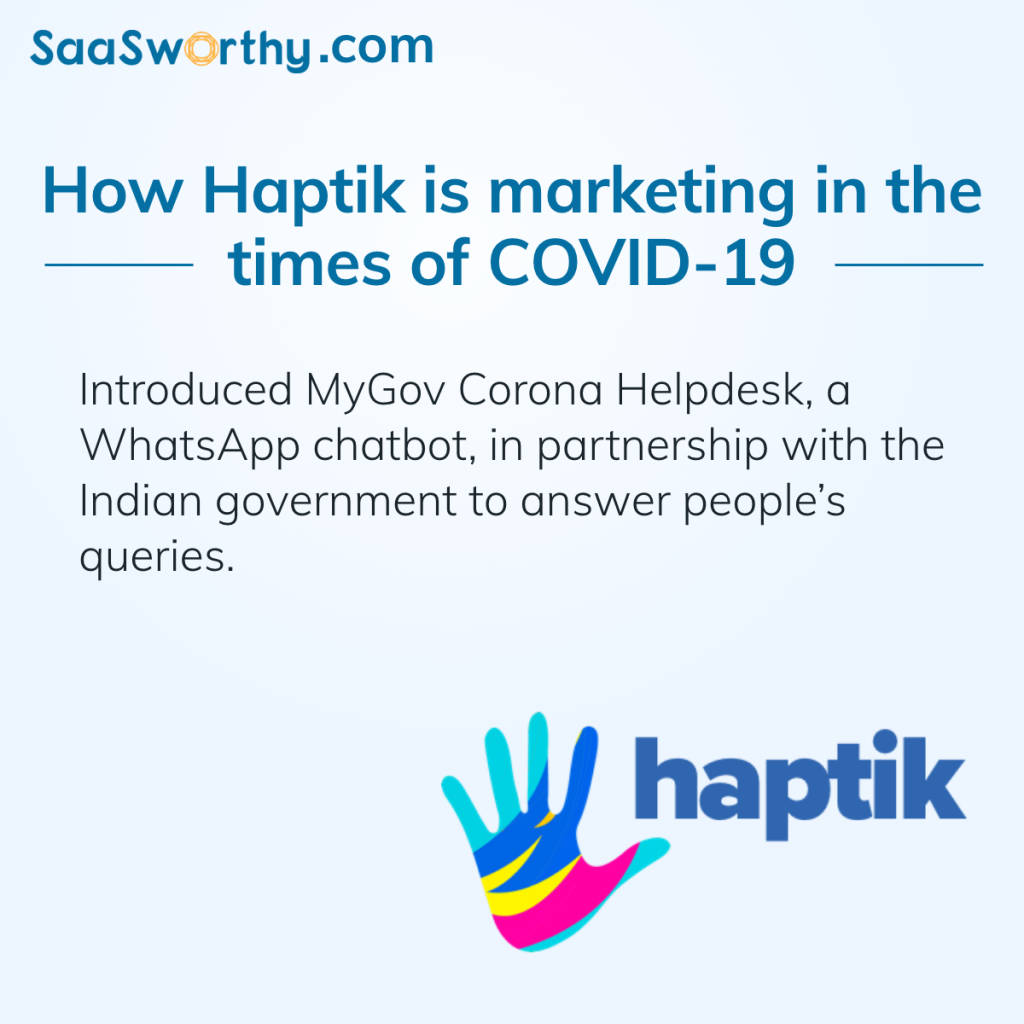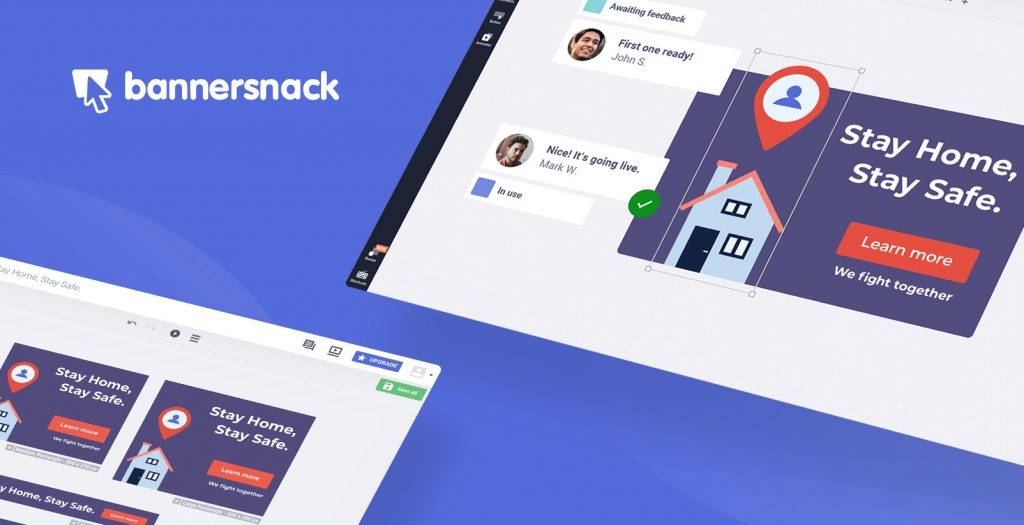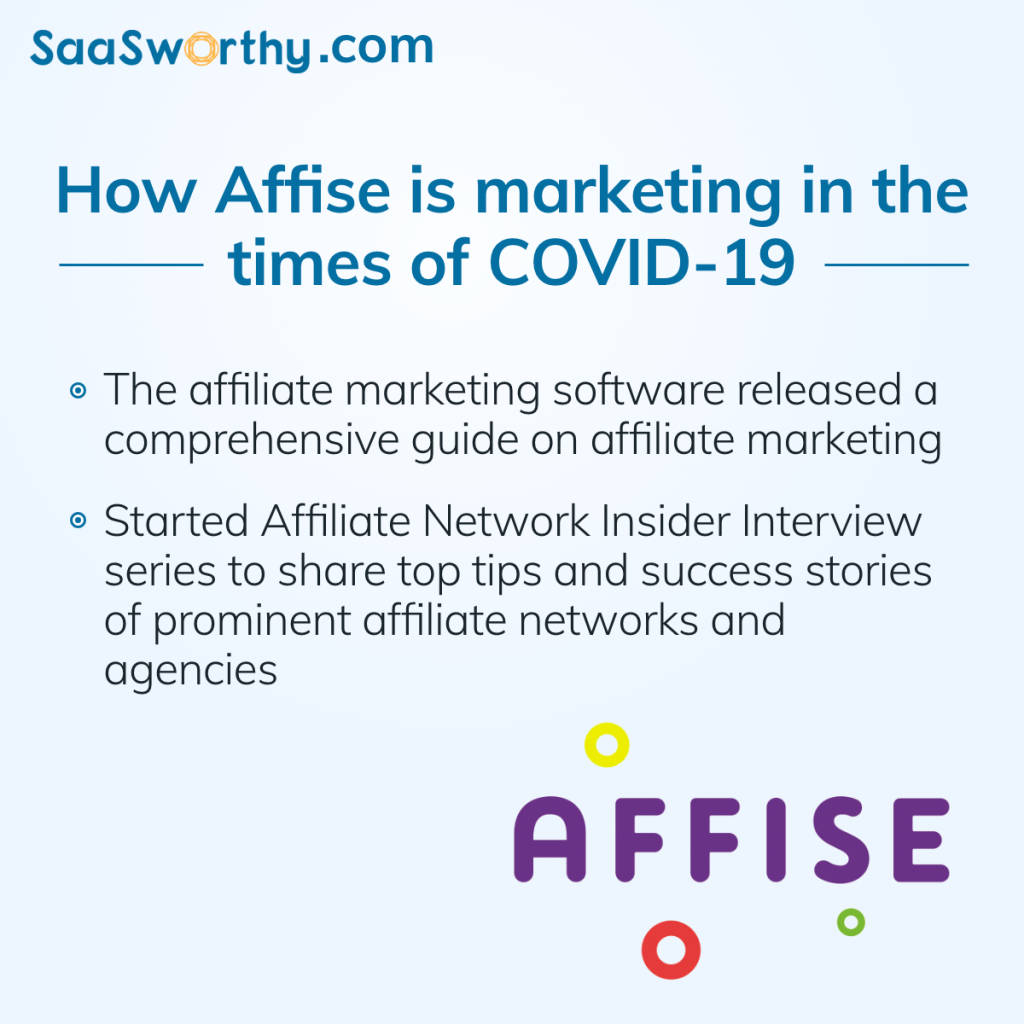To say that the coronavirus pandemic has changed the world around us would be an understatement. The crisis has brought decades of transformation almost overnight… right from remote work becoming the new norm, to relying on online interactions for conducting businesses. At the same time, while SaaS companies are witnessing significant growth, they are also adapting to the new normal since they can’t go to offline events for generating leads or conduct meetings to close deals. More importantly, as all companies are going through a challenging environment, SaaS companies have also started to tweak their communication and make it more empathetic. So, if you’re looking for a playbook as to how the best SaaS companies in the world revamped their marketing strategies amidst COVID-19, then you’ve come to the right place.
Table of Contents
Zoho
Zoho is among the pioneers in the Indian SaaS industry. The company has an entire suite of products to help businesses manage their work efficiently. Needless to say that COVID-19 derailed the brand’s marketing plans. When asked how they responded to the crisis, Praval Singh, VP Marketing, Zoho Corporation said that “as a company, we have always been agile with our marketing strategy. Right now, we’re focusing on surviving and serving. We have seen some good traction on our remote work tools including Remotely, which we launched in March 2020 and made it available for free until July 1, 2020. We have also cut back on our marketing spend and implemented a hiring freeze.“

As highlighted in our COVID-19: The Ultimate List of Free Software and Resources, Zoho took several initiatives. Mr Singh mentioned “we have rolled out several relief initiatives and resources to help different sectors — small businesses, governments, non-profits, and the educational institutes — weather this crisis. We announced the Small Business Emergency Subscription Assistance Program (ESAP) to help our small business customers, by waiving their subscription fee for three months. Customers with 25 employees or fewer who have been severely impacted by the economic disruptions may apply for it.“
“Government institutions and NGOs that need a custom app to manage any COVID-related public activities like patient monitoring or food distribution can apply for our COVID-19 App Program. We are building apps for them using our low-code development platform, Zoho Creator, and application-building expertise free of charge. We also announced a new mobile app, Zoho Classes to help schools continue their academic session, by teaching students online. With Classes, teachers can upload courses, run live classes, share assignments, collect responses, and communicate with students. They can also collect fees and sell school supplies. It’s free for all government schools in India. For all other schools around the world, it’s free for up to 100 students,” he added further.
In terms of the impact of these programs, he said that “we launched Remotely in the first week of March, and today, more than 17,000 organizations are using it. More than 10,000 businesses have benefited from ESAP.“

We also asked him about how these initiatives compare with traditional marketing activities such as offline events. Mr Singh stated “the world needs less marketing and more help right now; so we want to be useful to the community. That’s why, we are keeping our focus on survival and to serve while we all sail through this pandemic. Sure, some of our initiatives are bringing in new users to Zoho, and we hope that they would get enough value in our software and continue to use them in the long run. A lot of offline events are now being pivoted to virtual conferences. Though I am not sure if we are all ready to consume them in the current format. The attention rate on a webinar is much lower than what it is in an in-person session. But marketers around the world, including us at Zoho, are trying to write a new playbook for virtual events. Let’s see what we come up with.“
Haptik
The India-based chatbot company also chose an interesting marketing strategy. Haptik launched a new product that’s specifically aimed at helping users during this time. In partnership with the Indian government, it introduced a chatbot that works on WhatsApp.
According to Mr Rahul Zutshi, Director of Marketing, Haptik, “COVID-19 has impacted users on a personal and professional level. SaaS marketeers have had to alter their methods to understand the needs of their customers in the present climate. They are also trying to make themselves more relevant to the current situation by utilizing technology to develop products that have an impact on society. A case in point is the Haptik’s ‘MyGov Corona Helpdesk’, India’s official chatbot on COVID-19.”
Upon asking on what led Haptik to create such an app, he told us “in case of an epidemic, panic, and confusion set in before we really understand the true scale of the problem. No one had any knowledge about the cause of the virus or the source, let alone a cure. This led to a lot of misinformation being spread which had no basis or relation to the virus. Our idea was to collate the right information and bring it on one single platform for ease of access and that is where the idea of a WhatsApp chatbot called ‘nCov helpdesk’ was born. This was launched on February 10th and had verified information as stated by the WHO.”
“Post the launch of this chatbot, it caught the eye of the Indian government after which they reached out to WhatsApp (the platform Haptik’s chatbot was available on) to enquire about the chatbot and expressed interest in doing something similar, on a bigger scale, for India. They got in touch with Haptik and expressed their interest in launching their own helpline on WhatsApp – on cues of what we had already done with our chatbot – albeit on a bigger scale and with official information from the horse’s mouth. It took us about 4-5 days to build and deliver the chatbot according to what was expected by the government. ‘MyGov Corona Helpdesk’, the official WhatsApp chatbot of the Government of India was thus launched on March 20th,” he added further.

As far as traction is concerned, Mr Zutshi mentioned “out of the 26 million (2.6 crore) users of the helpline, over 50 lakh users started using the service in a 3-day period starting from the announcement of the 21-day lockdown (March 24th). The numbers have grown exponentially with over 40million conversations being handled by the chatbot, making it the world’s largest WhatsApp chatbot.”
Bannersnack
With everyone shifting to remote work, we also saw a significant uptick in the usage of online tools. Bannersnack, a banner-creation tool also rode the wave, but it still had to adapt to the new normal. What helped the company, however, was the fact that it was already focusing on empathy in its marketing. Teodora Gavrilut, Head of Marketing, at Bannersnack told us that “even before the spread of novel coronavirus, we made it our mission this year to focus on empathy. We made sure empathy was a key factor when it came to the way we communicated and interacted with our audiences and customers. Then, the pandemic was declared; therefore, we too had to adapt to the new world order while always keep in mind to spread empathy throughout everything we do.“

Upon asking about the actions Bannersnack took, she shared “since we’re an online design platform, a natural way for us to contribute to the fight against the spread of the novel coronavirus was by designing free resources and templates that people could download from a dedicated page. Our team of designers assembled a resource directory with fact-based messages and visuals featuring official advice and guidance from the WHO to help fight misinformation.“
Bannersnack also made its offering free for non-profits. Ms Gavrilut mentioned “we wanted to show support for the numerous NGOs involved in this fight and contributing to mission-critical services. That’s why we decided to give away free 90 days of access to our Team Plan, so they could focus on the essential matters such as gathering funds for their communities.“

“If there’s something we have learned during these times, it is that we are stronger together. We need to keep an open mind and pay attention to what’s happening around us, and we must always strive to do our best and help however we can,” she stated in the end.
Affise
A popular affiliate marketing software, Affise relies heavily on conferences and PPC campaigns as the main lead generation channels. But due to the COVID-19 crisis, events were canceled or postponed, and the buying capacity dropped drastically. Anastasia Zaichko, Head of PR and Marketing, told us that the company switched the focus to education and partner marketing activities.

“First of all, we re-activated our Affiliate Network Insider interview series, sharing top tips and success stories of the most prominent affiliate networks and agencies. Second, we applied video format to these interviews, and launched the YouTube series “41 Questions with Affise”. Such type of content was warmly welcomed by our audience and now we get at least 2-3 requests for interviews a week from industry players,” Ms Zaichko shared.
We also asked how Affise is creating awareness about affiliate marketing category to cater to new users, and she said that “for newbies, we are releasing an ultimate 50+ page guide on how to start and earn in affiliate marketing, and encouraging our clients to onboard new employees with our Affise Academy.“

She said many companies overlook partner marketing as a potential channel to generate leads and highlighted that “it’s perfect timing for cross-promotional activities with integrated partners and case studies with clients. It’s also high time to leverage all the advantages of affiliate or referral software. Your integrated partners and clients can become a great lead generation channel, especially if you offer them commission from each converted client.“
It’s evident that marketers are getting more creative to rise against the challenging environment presented by coronavirus. Some are turning to virtual events to generate buzz, while others are focusing on educational content. Some have also offered contextual products to help businesses and users during these stressful times. What’s your company doing during the COVID-19 pandemic? Let us know in the comments below.






